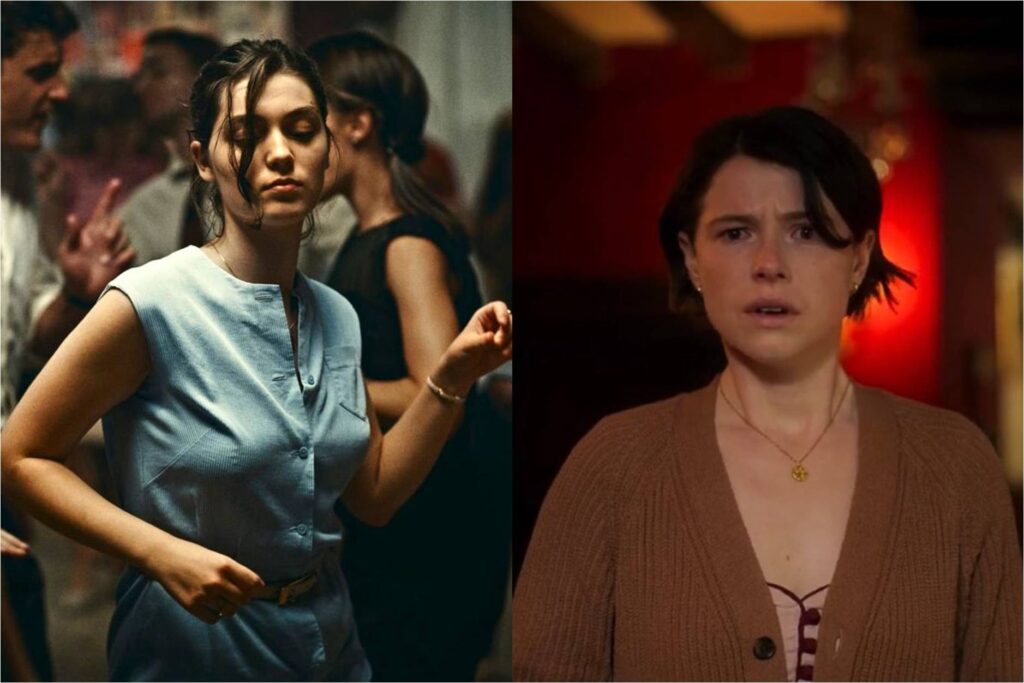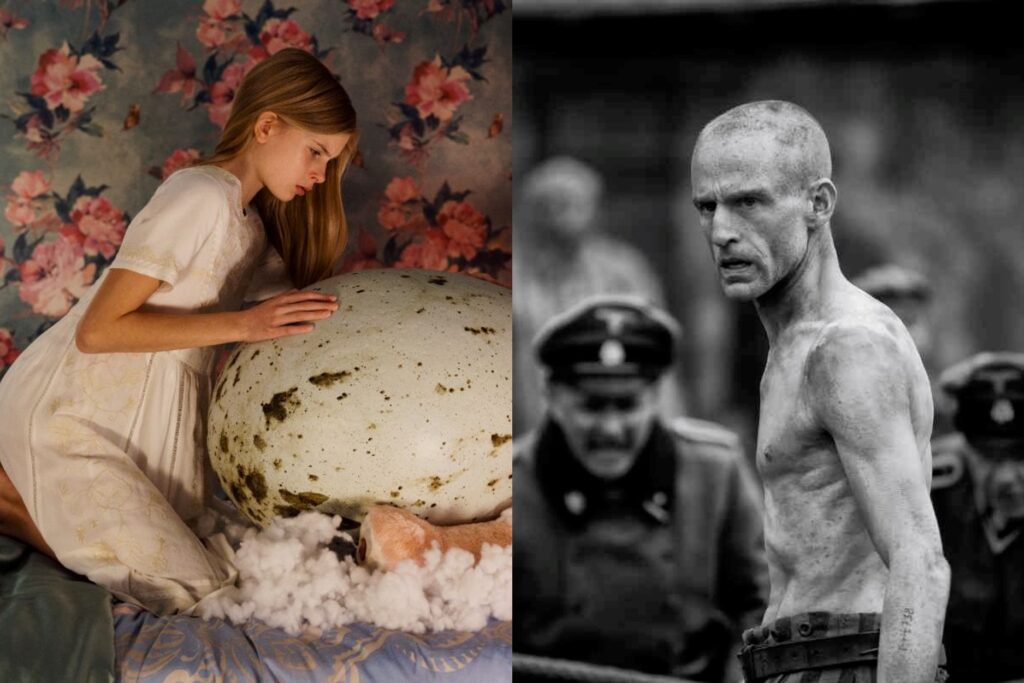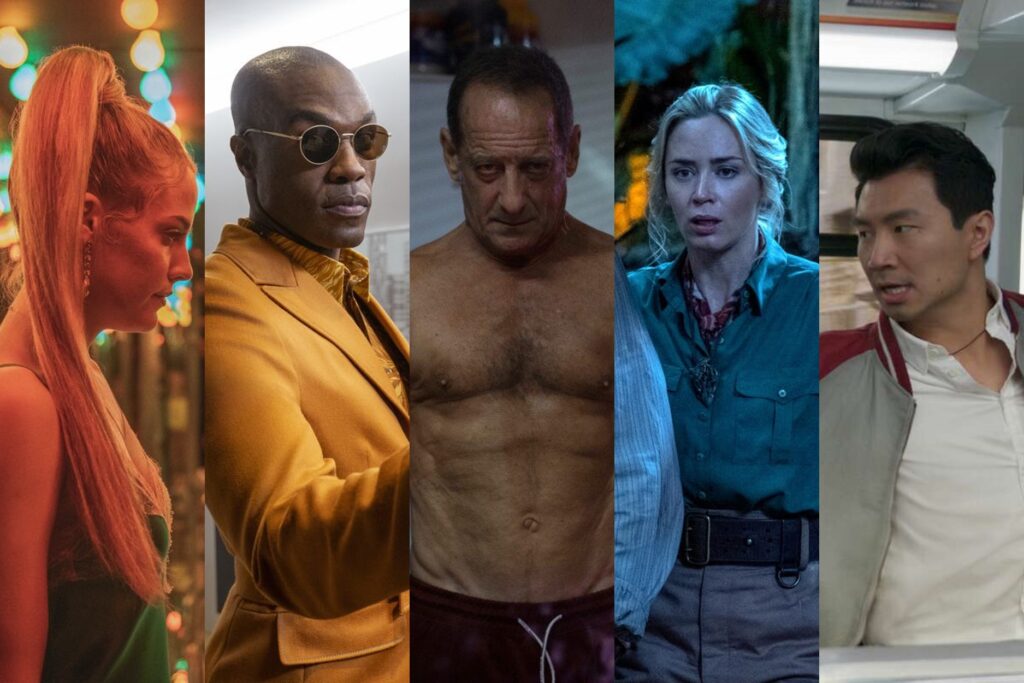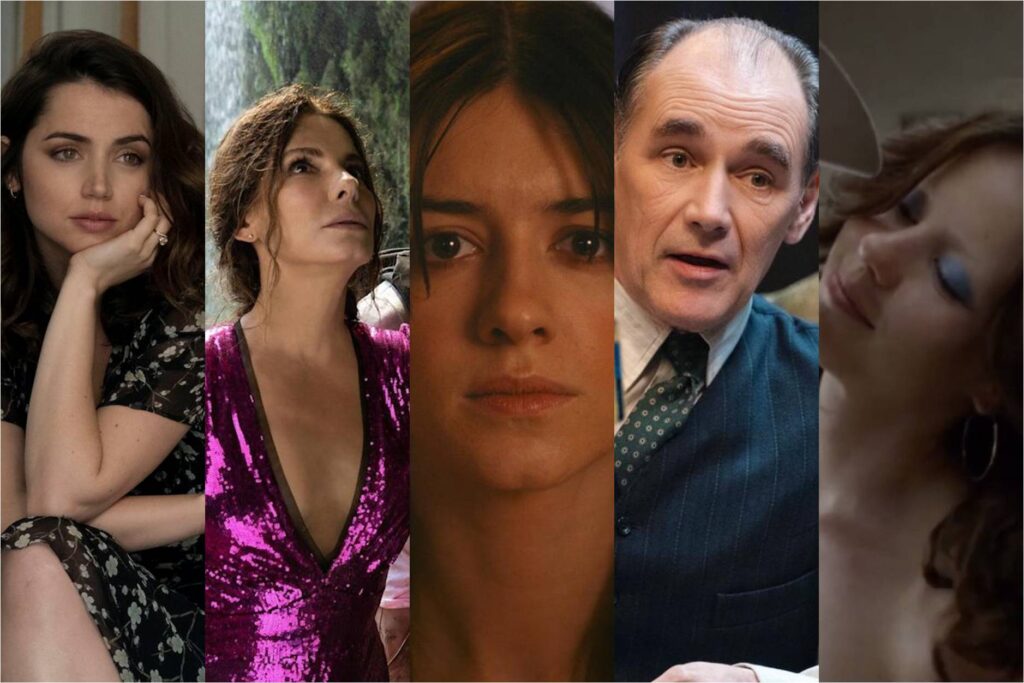Men, Happening, and Women Under Attack

The internet is fond of sarcastically asking if men are OK, but the same question might be more seriously asked of women. Pay equity, reproductive freedom, toxic masculinity, #MeToo—modern society is aswirl with issues surrounding female safety and autonomy. So it’s no surprise that cinema, with its quicksilver capacity to reflect on and respond to cultural shifts, is tackling these concepts with variety and alacrity. It is a bit surprising, however, for the same month to produce two theatrical releases which wrestle with men’s aggression and women’s liberation so directly, even if they do so in dramatically different ways.
Alex Garland’s third feature, the coyly titled Men, is the more ambitious work, at least in terms of scope and style. Garland favors small casts and isolated locations, but his films (Ex Machina, Annihilation) possess an aesthetic grandeur, teeming with bold colors and striking images. (His television series, the frustrating but beguiling Devs, is one of the most visually enthralling things you can find on the small screen.) This isn’t merely a matter of showing his audience pretty pictures but of somehow splicing beauty with deformity. Garland is a painterly artist with the emotional sensibility of a sick fuck. Read More




